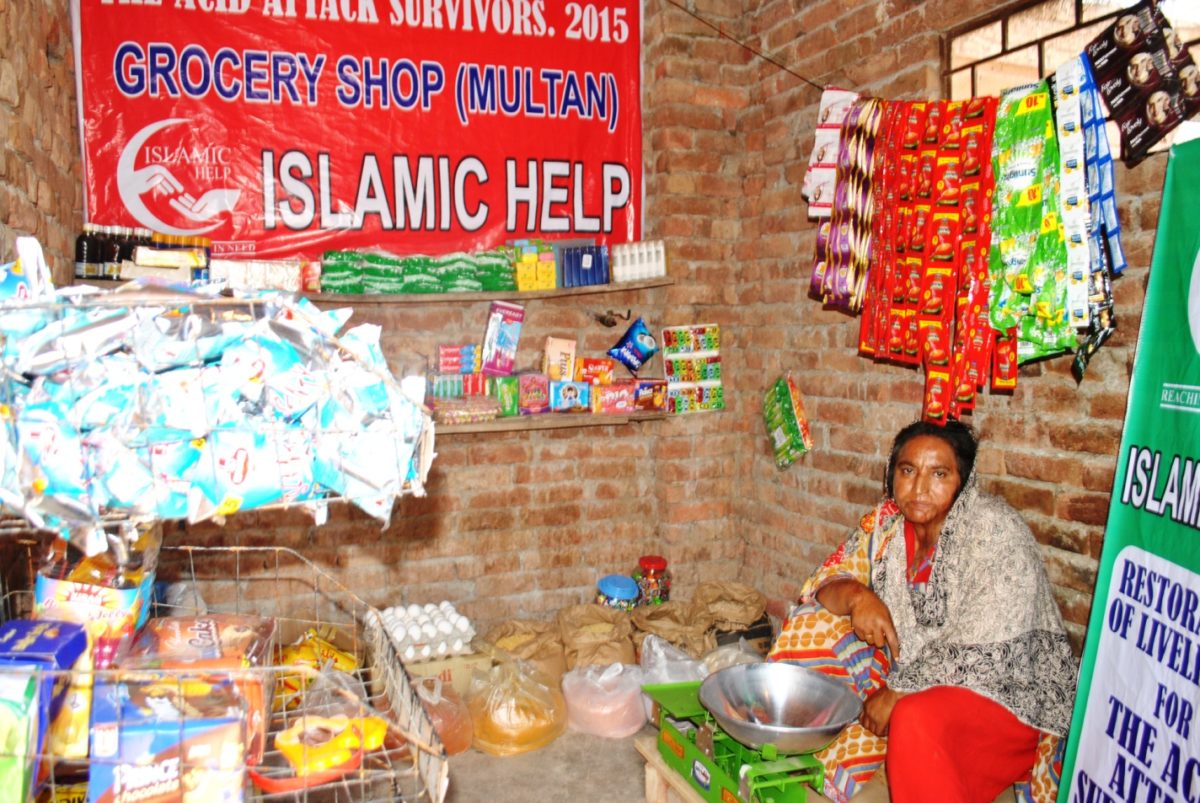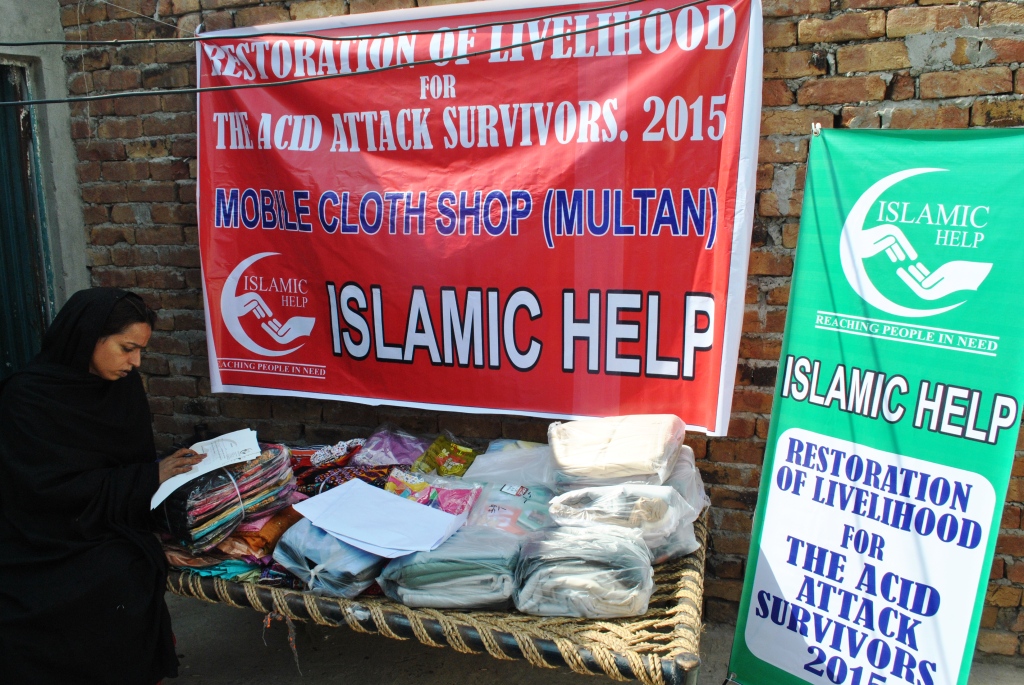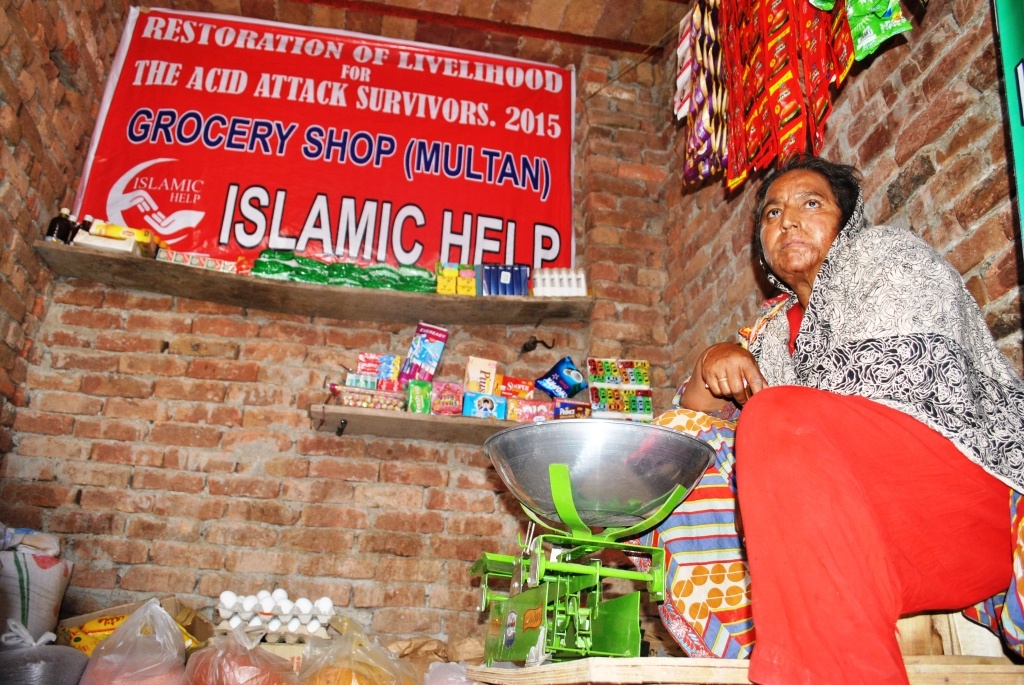Livelihoods for acid attack survivors
Acid attack survivors have taken a step towards the semblance of a normal life thanks to livelihood projects set up by Islamic Help.

Four women left permanently scarred by attacks have been provided with opportunities to move towards self-sufficiency so they can support their families and be active members of society again.
The beneficiaries were selected on a needs basis and include the most vulnerable acid attack survivors in the district of Multan, Pakistan. Three grocery shops and a mobile clothes shop were set up to help them start their enterprises.
As part of the pilot project, Islamic Help Pakistan identified suitable trades for the beneficiaries taking into regard their talents, abilities and aptitude. The business ventures were identified on criteria including the ease of running and managing them.
The beneficiaries chosen to run small grocery shops were Zahida Parween, whose son is the only breadwinner in the family of 7; Farhana Bibi, who is dependent on her son, a breadwinner for the 6 members of the family; Azra Bibi, who works as a housemaid and lives in servants’ quarters with her disabled daughter. Shama Waseem, a mother-of-six children of whom four are still at school, was selected to set up a mobile clothes shop.


They were provided with the goods and materials to start their businesses. The sustainable livelihood has brought some comfort to their lives as the acid attack survivors can now feed and fulfil the most urgent needs of their families in a sustainable and dignified manner.
The programme is a continuation of Islamic Help’s work in aiding acid attack survivors, which has included our Smiles Better campaign and has been featured in the Oscar-winning documentary Saving Face.
Acids attacks are regarded as the worst form of violence as they leave victims physically and psychologically scarred for life. Most are targeted against women.
Human Rights Watch and the Human Right Commission of Pakistan have estimated that the number of acid attack victims could be as high as 400 to 750 per year. The Pakistani government responded by amending the law with those convicted of acid attacks facing minimum sentences of 14 years imprisonment to life.
As well as the physical effects - which require extensive medical treatment that many cannot afford - the psychological consequences can be even more devastating as they affect not only the victim who suffers the trauma but their families and friends.
Acid attack survivors suffer psychological symptoms, ranging from depression and nightmares to fears of repeat attacks, and are often scared of facing the outside world or are shunned by others. It also impacts on their means to provide for their families because of their severe health problems, limited resources and social stigma.
Please continue to help us in reaching the most vulnerable people in need. Donate today



